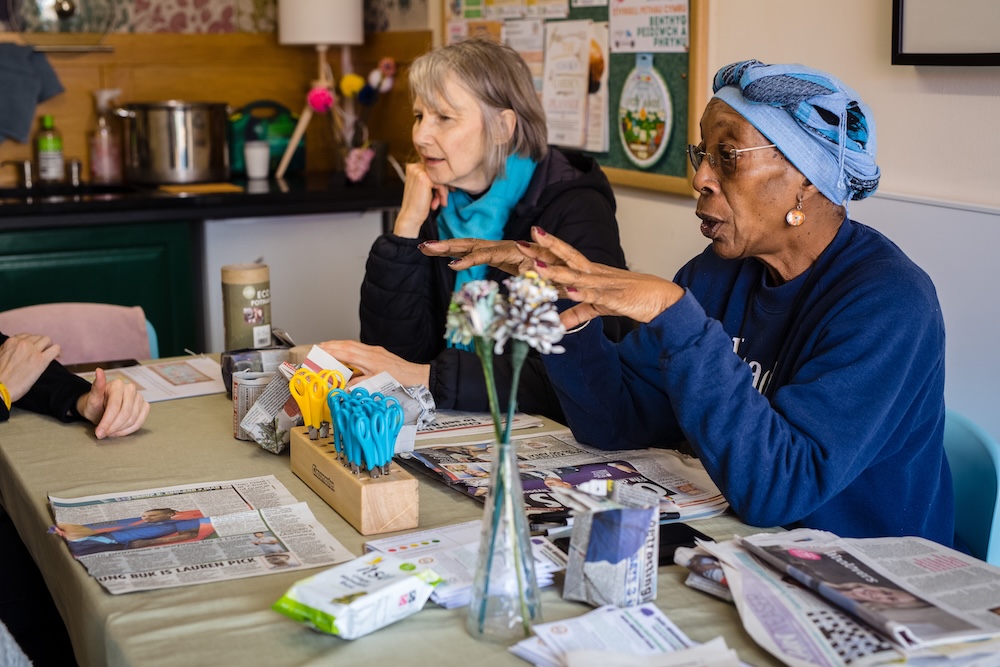Gareth Cooke, Head of Torfaen HDRC, reflects on the importance of research-led local authorities to tackle regional inequalities and improve communities’ wellbeing.
In Torfaen, a woman can expect just 53.3 years of healthy life, which is over six years less than the Welsh average. Behind that figure lie deep-rooted inequalities that shape health, opportunity, and quality of life. These differences are not inevitable. They can be understood, addressed, and reduced, but only if local government has the tools, time, and research capacity to understand what really drives them.
That is why Torfaen County Borough Council (TCBC) became the first “Marmot Council” in Wales, with a commitment to reduce health inequalities and improve the lives of everyone in our communities, and one of only two Welsh local authorities to secure five-year funding from the National Institute for Health and Care Research (NIHR) to establish a Health Determinants Research Collaboration (HDRC).
A new model for evidence in Local Government
HDRC Torfaen is a partnership between TCBC, the University of South Wales and Aneurin Bevan University Health Board. Its mission is to help the Council make better, evidence-informed decisions that improve health and wellbeing across the borough.
Its mission is to help the Council make better, evidence-informed decisions that improve health and wellbeing across the borough.
A multi-agency Programme Board, chaired by the Council’s Deputy Chief Executive, guides the HDRC’s work and ensures alignment with strategic priorities. Nationally, Torfaen joins 29 other HDRCs across the UK in this pioneering initiative, with Rhondda Cynon Taf being the only other Welsh authority involved.
Importantly, Torfaen benefited from a development year before its formal launch in January 2025. This allowed the Council to establish governance arrangements, recruit a team, and engage with partners before embarking on its first phase of research.
Building the foundations
During 2024, the Council began building a research infrastructure, something entirely new for local government. Using an approach called Group Concept Mapping, staff and partners identified the HDRC’s initial focus areas:
- Giving every child the best start in life
- Tackling domestic abuse
- Reducing economic inactivity
To ensure research is conducted ethically and transparently, the Council also created Wales’s first local authority research ethics committee, which is a significant milestone.
Processes were introduced to generate research ideas from staff and align them with both Council and NIHR objectives. Despite most of the HDRC team joining only in April 2025, the programme has already gained momentum.
Innovative. Informed. Independent.
Your support can help us make Wales better.
What’s been achieved so far
Key developments from the first year include:
- Evaluating research culture and capability: interviews with senior leaders are underway to establish a research culture and capacity baseline for measuring progress over the next five years.
- Strengthening academic partnerships: collaboration with Cardiff University and Health and Care Research Wales has positioned Torfaen as the only Welsh local authority awarded ImpACT funding to explore how AI could support adult social care.
- Supporting practitioner-led research: a social care colleague is investigating which supported employment approaches are most effective for people with learning disabilities, neurodivergence, or complex needs.
- Community engagement: the HDRC is working with local community councils to identify wellbeing and research priorities directly informed by residents’ experiences.
This activity complements the Building a Fairer Gwent agenda and the region’s designation as a Marmot Region. By integrating data on housing, education, employment, and the economy, HDRC Torfaen contributes to Wales’s ambition to become the world’s first Marmot Country.
Challenges and learning
Embedding research in a local authority context is not easy. Councils must respond rapidly to public need, yet meaningful research often requires time, patience, and collaboration across multiple agencies.
A further challenge lies in expectations: research is often seen as synonymous with consultation or engagement, when in fact it requires systematic design and analysis.
Accessing and linking datasets has been one of the biggest barriers, both due to cost and the complexities of data sharing. While some staff bring strong research skills, others are engaging in formal research processes, including ethics and proposal design for the first time. Building this confidence and capacity is a key part of the HDRC’s cultural change mission.
A further challenge lies in expectations: research is often seen as synonymous with consultation or engagement, when in fact it requires systematic design and analysis. Clarifying what the HDRC is, and how it can support services to make evidence-based decisions, has been an important part of its first year.
Looking ahead
HDRC Torfaen has the potential to demonstrate, across Wales, the value of embedding research in local government. As resources tighten and political uncertainty grows ahead of next year’s Senedd elections, decisions grounded in robust evidence are more important than ever.
The collaboration between Torfaen and Blaenau Gwent Councils, working together in a federated approach, will further strengthen the evidence base for tackling health inequalities in the region. Lessons learned here will inform other authorities considering similar models.
Sustaining this work beyond the initial five-year funding period will be crucial. HDRC Torfaen aims to secure additional grants and partnerships to ensure the programme continues to grow and deliver value for residents.
Discussions and debates that drive Wales forward.
Join Wales’ leading independent think tank.
Closing reflection
HDRC Torfaen has already demonstrated that research can have a home within local government. Service areas across the Council are now seeking HDRC support for data analysis, rapid reviews, and training, a clear sign that a research culture is taking root.
If every Welsh local authority were empowered to be more research-active, Wales could move closer to its ambition of reducing health inequalities and improving public health outcomes. Evidence-led decisions today could mean fewer hospital admissions, fairer opportunities, and healthier lives tomorrow.
All articles published on the welsh agenda are subject to IWA’s disclaimer. If you want to support our work tackling Wales’ key challenges, consider becoming a member.





